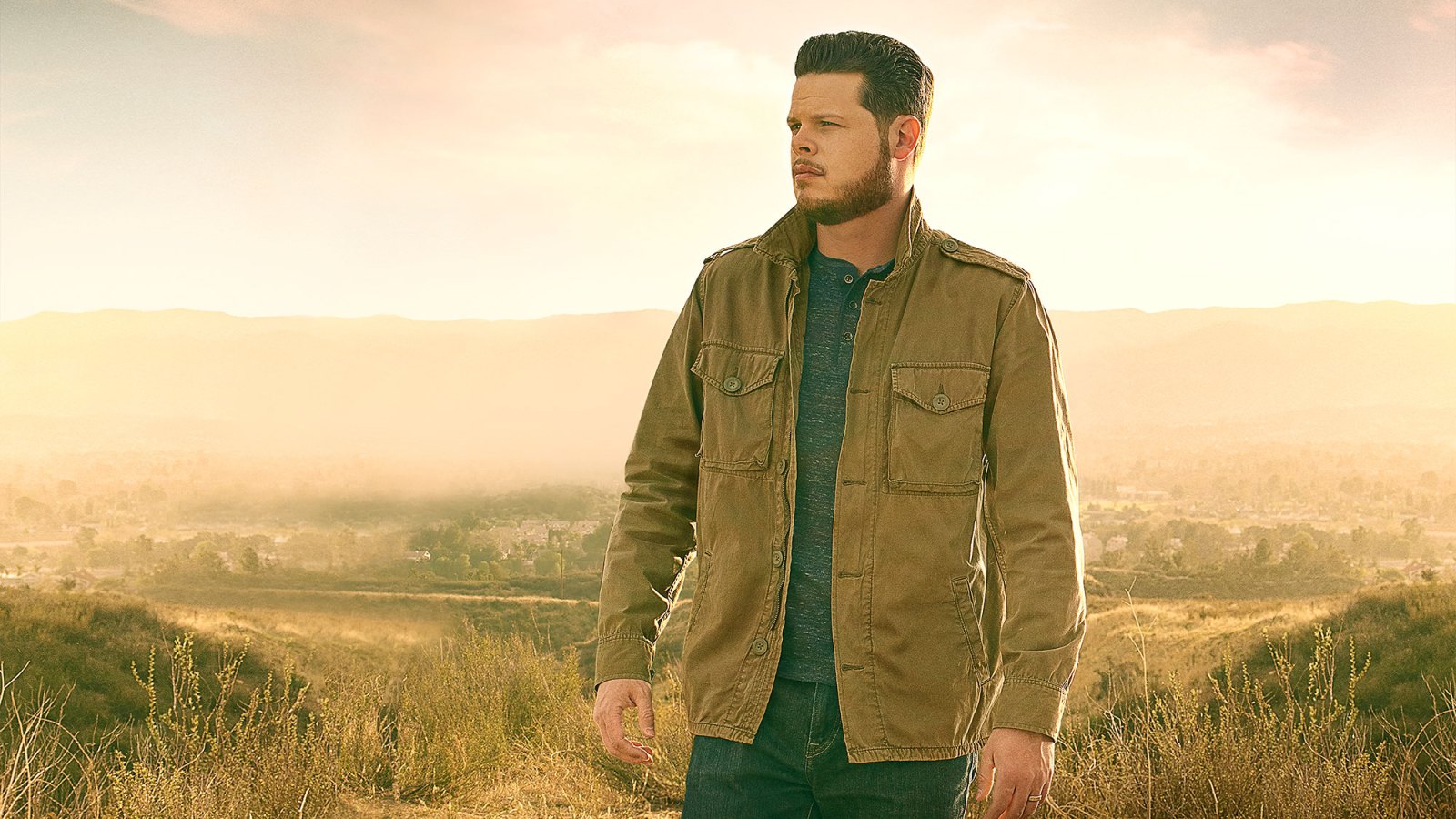Breaking Homicide is back for season 2 — and host Derrick Levasseur has everything he needs to crack another case.
“I’m extremely excited about it. I’m extremely happy with the cooperation we had from law enforcement this year,” the former police detective told Us Weekly exclusively. “I really do think the show has evolved into something like nothing else on TV right now. I know that sounds cliché to say it, but I’ve been watching true crime for a long time. I’ve been involved in law enforcement for a long time and now there’a a level of transparency departments are starting to show because of the pressure that’s being put on them.”
Levasseur further explained how Breaking Homicide, which follows the Big Brother season 16 winner pursuing unsolved murders with fresh eyes and new technology, is different than other true-crime series.
June 3rd. The new season is coming. Buckle up. #BreakingHomicide pic.twitter.com/NRbrPtRdJZ
— Derrick Levasseur (@DerrickL) May 8, 2019
“This is, in my opinion, the first of its kind and hopefully just the start of something great because we really need to build a stronger relationship and a stronger trust between law enforcement and the community. I think this is a way of doing it,” he explained. “It’s taking us behind the curtain, inside the walls of these police departments and showing that these officers do actually care about these cases and are willing to do whatever it takes to solve them.”
Levasseur added: “I’m really happy with it. I’m proud to merge the two, and I’m hoping this is a trend that continues for a very long time.”
Scroll through to read Us Weekly’s exclusive Q&A with Levasseur:
Us Weekly: Congrats on the premiere! Tell me about coming back for season 2.
Derrick Levasseur: I am excited to put it out there, that instead of doing six cases, we wanted to do more cases, so, we kind of restructured the show. Because it’s just me, we are going to do one hour and because we are only doing one hour we were able to do eight cases instead of six. Most of the cases, we actually have direct police involvement where I have access to the information around the case, sometimes in a limited form. But the most important thing is they are willing to come on camera, discuss what they can about the case, and then they are open to the idea of listening to me at the end. And letting them know my findings and maybe giving some recommendations on what they can do moving forward. I think our viewers are really going to like it because it shows me passing the baton to the next entity and someone who can actually do something with the information I have gathered. They can go make an arrest, they can go speak to the D.A.s office, so I think it gives the audience a little bit more resolution as far as, “Where do we go from here?”
Us: I’m assuming your past work as a police officer helped bridge the gap a bit? And that you are not only the lead of the show, but also a producer.
DL: I think it definitely helps. You have these cases that are 15-20 years old, and just like in any job, that detective that was originally working that case, eventually he or she retires, or they move on to a new position and what happens is that case file gets transferred to the new detectives and there may be some type of communication, a quick rundown of the case, but unless that detective goes and actually reads every single page of that report they’re not going to know as much about the case as the original detective. So imagine that happening two or three times. So by the time it gets to me, the detective in charge of it, he may have a very limited amount of information or knowledge about the case itself.
I’m not saying I’m the best detective in the world, but I think I know enough, and I have seen enough to have enough credibility to come in, and then for them to know that I’m not going to do anything to jeopardize the case. And as you mentioned, I am a producer so if there is something I know we want to keep off record, or we want to keep specific to the department so that if someone does come forward, I am going to do that because that is the goal.
Us: Tell me about the process of choosing cases?
DL: Well first of all, it’s the worst job in the world because you have these family members reaching out to you and every single one of them, you can’t help but feel for them, especially as a father myself. You start to read from these parents who feel hopeless because they just can’t even get the police department on the phone anymore because it’s been 20-30 years and I’m kind of like their last shot. To not be able to do every single one of them is extremely disheartening.
But as far as the criteria, first and foremost, No. 1 criteria is I have to have family involvement and family being OK with it. So I won’t do a case, I don’t care how good it is, unless the family wants it to happen because in some situations the family doesn’t want to reopen old wounds. They don’t want to rehash this information. They just want to move on with their life, and I respect that. I won’t touch a case unless the family’s on board.
In some situations, we have law enforcement reach out to us first. We did this season. It’s actually the first case tonight, the North Carolina case that we’re doing tonight was brought to me by the Randolph County sheriff’s department, a captain. We would really, really like to have police cooperation and we want a case that has been a few years, maybe 15-20 years. Sometimes we do five, but we want a case that’s old enough where it needs to be rejuvenated, re-brought up into the limelight, re-put in the front page of the media, but also a case that is old enough where we can take it and maybe do something different because science and technology has changed so much since the last time it was investigated.
Us: What happens if and when you hit a dead end in the investigation?
DL: We’ve been fortunate so far where we don’t go into every situation and find a smoking gun, but we usually find something and we’ve been fortunate in the 14 cases we’ve done now. We’ve always found something, whether it was a witness, whether it was a different angle, whether it was a new person of interest, whether it was something at the crime scene. Again, it’s not always a smoking gun, but something to move the case forward. Some we’ve been very successful. Some the police get the information. We never hear from them again.
I interview a lot of these people before going to town. I look at a lot of the case information before going. If I’m doing my job correctly, I should be able to know before going into town what’s going to transpire without the random things that can happen as far as people coming out of the woodwork or someone changing their story when I get there. But for the most part, if I’m doing my job the results should be beneficial to everyone.
Us: Right. Now without giving anything away in the premiere, you make some pretty startling discoveries. What is it like for you in those moments?
DL: You got to remain composed because, again, I’ve been around long enough to know that, short of someone saying I did it, no matter what we find, it’s going to have to go through a strenuous process and a high level of scrutiny because the case is older. But when that happens it’s extremely gratifying because yes, it proves that we picked the right case, we came here for the right reasons and it’s paying off. But I’m also thinking to myself, this is something that could ultimately solve this case. This is ultimately something that could put someone in prison for a really a heinous act. Again, going back to the family at the end of all of this, sitting down with them and not just saying, “Yeah, your loved one was murdered. That’s confirmed.” But instead giving them something to hold on to and say, “Hey, listen, I know it’s been 10-15 years, but we found something that we think could actually solve this case.” And saying that with the level of truthfulness and not just saying it to make them feel good. Seeing their reaction, that’s what it’s all about.
Us: How do you keep your composure in those moments where you know someone is lying to you, or that they themselves might be responsible for someone’s death?
DL: It’s definitely training and experience. You learn over time that emotion is once you show emotion they’ve won. If you are happy or excited, they’ll pick up on that and they may change the subject very quickly because they realize they’re hanging themselves. The best thing you could do is keep your face blank, keep that poker face on and know internally, and that’s what’s so great about the show because a lot of these interviews, you guys are coming along on the investigation with me. There are facts about the case that you’re aware of now. You see me and you see me sitting there asking certain questions that you wanted to ask yourself, and when they give their response you know they’re lying. As a viewer, you’re sitting there in your seat going, “He’s lying. I know he’s lying,” and again, they show my face and I’m keeping a blank stare and yet I’m celebrating with you because I’m aware that I just led them down a path and they hung themselves. It’s a poker game. I actually like it. It’s a mental battle and it’s kind of like they’re trying to fool me, and at the same time I’m pulling some cards on them as well. I got aces in my pocket, but there’s no need to show them.
Us: You’ve said before that you like to continue the conversation after the episodes air. How can fans continue that journey with you?
DL: Actually there’s a podcast that I signed with Investigation Discovery. It’s called “Uncuffed.” We’re going to be talking about a lot of topics. There’s more to come on it, but specifically we’re going to be talking about the cases that I’ve done on Breaking Homicide, having updates, listening to participation, bringing on people that were on the episodes, having them on the show as well. That’ll be coming near the end of this season of Breaking Homicide. But it’s going to be with Catherine Townsend who’s a licensed private investigator. Also someone who already has a successful podcast called “Hell and Gone.” Like I said, we’re going to be talking about a lot of different topics and true crime, but we will definitely cover the cases that were shown on Breaking Homicide and even more in depth.
Breaking Homicide premieres on ID Monday, June 3, at 10 p.m. ET.
With reporting by Sharon Tharp


